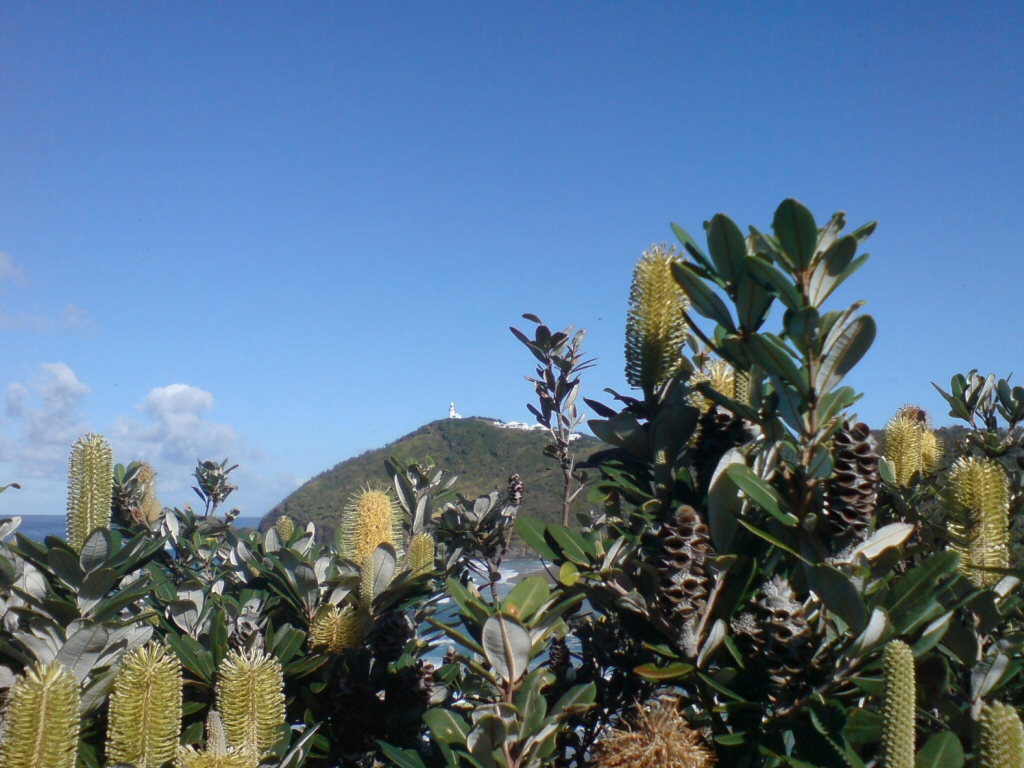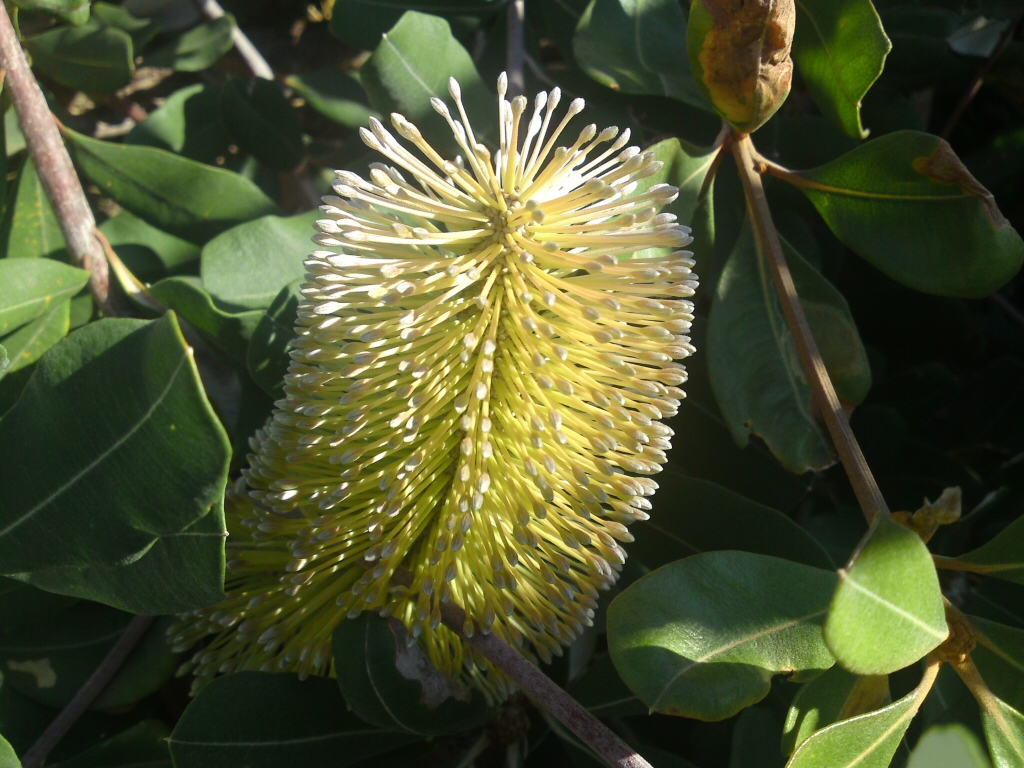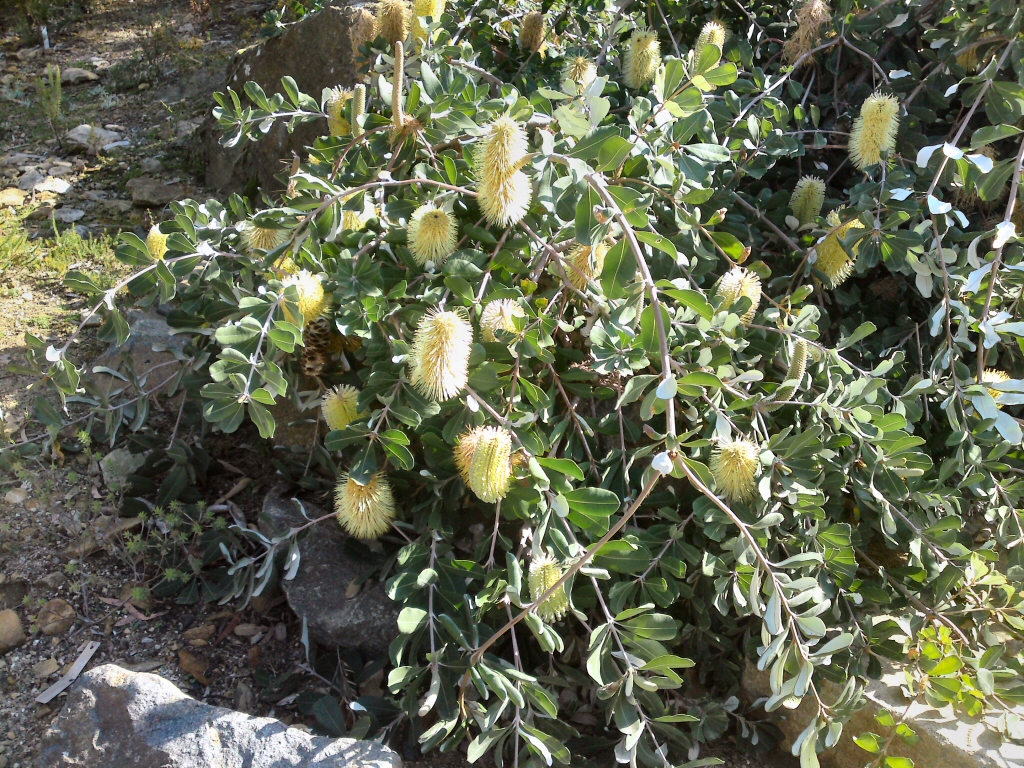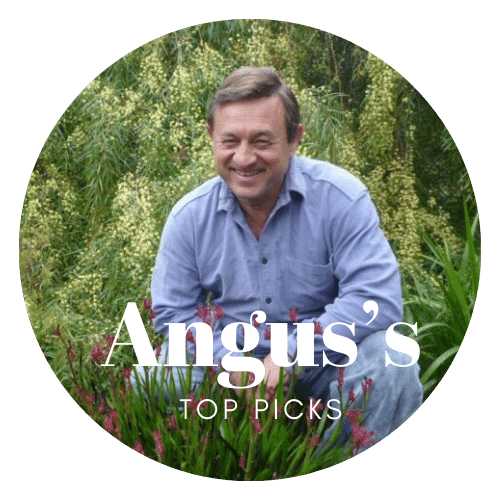-

Banksia integrifolia - Coast Banksia
-

Banksia integrifolia - Coast Banksia
-

Banksia integrifolia - Coast Banksia
This variable, adaptable and beautiful banksia will grow slowly to eventually attain tree size, and suits many different positions from coastal gardens where it will handle salt laden winds with ease, to inland cooler areas where it is frost and drought tolerant. The leathery leaves have attractive dark green colouring with silver reverses. The large lemon yellow flowers are produced from autumn through winter to spring, are nectar rich and attract wildlife, and are followed by the iconic fruit. Older specimens often have interesting gnarly forms and bark. It naturally occurs on the east coast of Australia, from Victoria up to Queensland. Banksias are phosphorus sensitive, so a good native fertiliser is best when it comes to feeding time.
